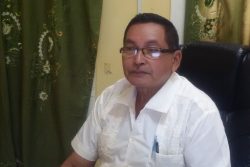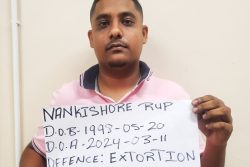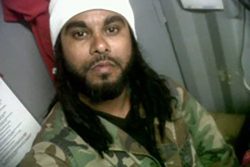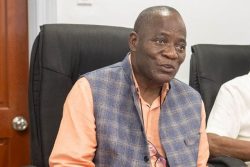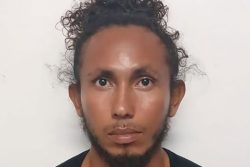The five nominees vying to be the PNCR’s presidential candidate on Friday listed education, transparency in government policies and an inclusive approach to development among their solutions to bridge the country’s racial divide.
At the party’s first town hall-style community meeting at Queenstown, Essequibo, the nominees—James Bond, David Granger, Carl Greenidge, Dr Faith Harding and Basil Williams—dubbed the “Magnetic Five” by a party supporter, set out how they would address ethnic tensions, should they win the election due this year.
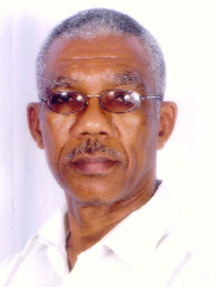
At the end of the meeting, there was no clear front runner. However, for Mazel Blackman, Granger was the best of the nominees. “If I had to choose I would have chosen David Granger and seconded by Carl Greenidge, then I’d have Faith Harding,” Blackman told Stabroek News. “It is a good team and I trust that we would be successful, the team would be successful, at the upcoming election so that our country can move on efficiently,” Blackman added.
Desiree Charles, another attendee, who dubbed the nominees “The Magnetic Five” because she said they were very good in making their presentations, felt they offered hope for a better Guyana. “I think with that team, [they] will take Guyana to another level and we the people of Guyana, regardless of ethnic background, will come together and try to forge Guyana to a higher level with that leadership.”
But unlike Blackman, Charles was reluctant to call a winner.
Former Caricom economist Greenidge said he did not believe that government could solve all of the “dimensions” of the ethnic issue even as he noted some policies compound the problem. “To the extent that policies are transparent and clear, then I think one would find that ethnic tension arising will be less evident. If the government sets rules whether if it is for the allocation of lands, the apportionment of jobs, the award of scholarships, the granting of contracts… if those areas are managed by policies that are transparent and fair you will find that the ethnic problems of Guyana disappear,” he said.
 He reiterated that once those “explosive areas” are dealt with transparently, ethnic problems as they exist locally would not be of any significance.
He reiterated that once those “explosive areas” are dealt with transparently, ethnic problems as they exist locally would not be of any significance.
Dr Harding said at the heart of the issue was distrust for each other, particularly among older citizens, who she said are “steeped in it.” The former minister said the youths on her popular Facebook page were demanding a change. “You see them saying to me ‘we are tired of the racial divide that is being pushed in our country by our political leaders, we want change, we want to live well together… we the young people what we want is good health programmes, good education, activities for the young people and we want jobs that pay good wages.’”
Dr Harding said the communities need to come together and undergo training in how to take responsibility in bringing the people together. The UN employee said this is what is done in conflict resolution. “It’s in the community that we’re going to do that change, it’s in the community where we share love, a meal and our dreams. We’re going to bring back what was lost,” she said.
Meanwhile, Granger, a historian and retired army Brigadier, said some political writers have been feeding the people “a diet of lies” and there are many youths who are unfamiliar with the country’s history. He added that despite the wiles of some politicians, the people were coming to together. However, he acknowledged that problems persist. “In the homes, old-fashioned parents are telling their daughters who to marry and who to date and that type of thing, so we’re not out of the woods as yet. We still need to do education; we still need to ensure there’s respect at the level of the political administration,” Granger said.
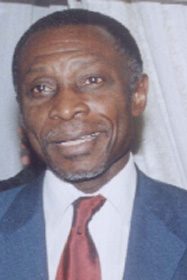
Attorney and party Vice-Chairman Williams, however, believes that Guyana’s ethnic problems materialise in certain contexts and he pointed out that many families are mixed. According to him, “it’s clear that if the Guyanese people are left to themselves, we would work things out.” He added that legislation never works in tackling racism. “In our Constitution, there’s a prohibition against racism; has that provision been observed? It has largely been observed in the breach. More came in 2001 with these (Rights) Commissions. There’s a Commission which Bishop Edghill heads and after all these years of Bishop Edghill’s work could you tell me whether they have solved the racism problem in Guyana?”
According to Williams, the Constitution is not geared towards enabling the Guyanese people to live as one irrespective of race. “I believe as a human being essentially the problem is a problem of your own heart, it’s a problem of the condition of the mind… I would borrow from the great Martin Luther King and say that it is time we start looking at people and judging them, if we got to judge them not by the colour of their skin but by the condition of their hearts,” he concluded.
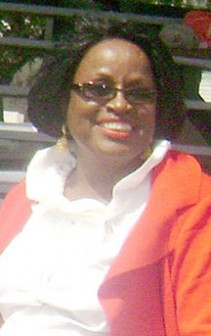
Bond, at 31, the youngest presidential aspirant in the race, said the race problem could only be treated by using the vision of the PNCR. “First off, a vision of power sharing; you have to have the vision from top down, you can’t have from bottom up. We have to devise a system where all become involved and not only Indians and Africans, we have Amerindians too and coming as a Mabaruma boy I feel the Amerindian community has been left out of the vision,” he said. Bond, an attorney, also said there needs to be equal disbursement of resources and the inclusion of youths in the national debate. “Economic impoverishment is what breeds distrust, is what breeds racism in the first place, so bring them in. The second thing is to work on the young people… the young people are ready to stamp out racism; they don’t want to go back to 1966, they want to think about building for the future and how they could benefit and develop their own country,” he stated.
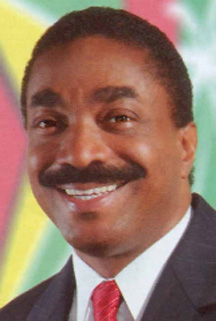
Friday’s meeting was the first in a series which will run until February 14, with a Special Congress planned for February 26 where the presidential candidate will be elected. The nominees are meeting residents today at the Corriverton Primary School at 2 pm and at the Manchester Secondary School at 5 pm.



